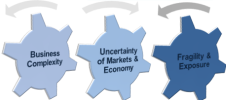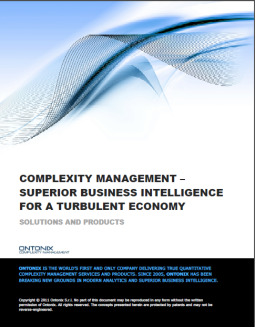Don’t Let Complexity Kill Your Sales Model – Forbes
Monday, 18 March, 2013 Leave a comment
I’ve tried BUT, grudgingly, accepted that you just can’t show people – who are blinded by their own self-importance, ignorance or whose vision is impaired by the blinkers of an engrained belief-system – stuff that they just don’t want to see!
When things start to head in the wrong direction ‘they’ are the one’s fastest to seek to apportion blame. Whether it is the “market”, the competition, the supply chain, a division, team or specific individual there has always got to be someone or something to point at to deflect criticism away from them. Strangely this brand of leader are never so quick to acknowledge the impact of factors, often outwith their scope of control, when they add up to success!
These people are business leaders in name or position but NOT in nature. They are able to perpetuate what they have learnt but at the expense of what they should know. They have spent so long reaping the rewards of manipulating systems – to sustain the financial returns the model DEMANDS – that they have become so obsessed with the golden eggs, they forgot to feed the goose!
Business customers increasingly want their vendors to have real expertise in their specific industry or function, such as finance or marketing. They expect vendors to help solve business problems…














